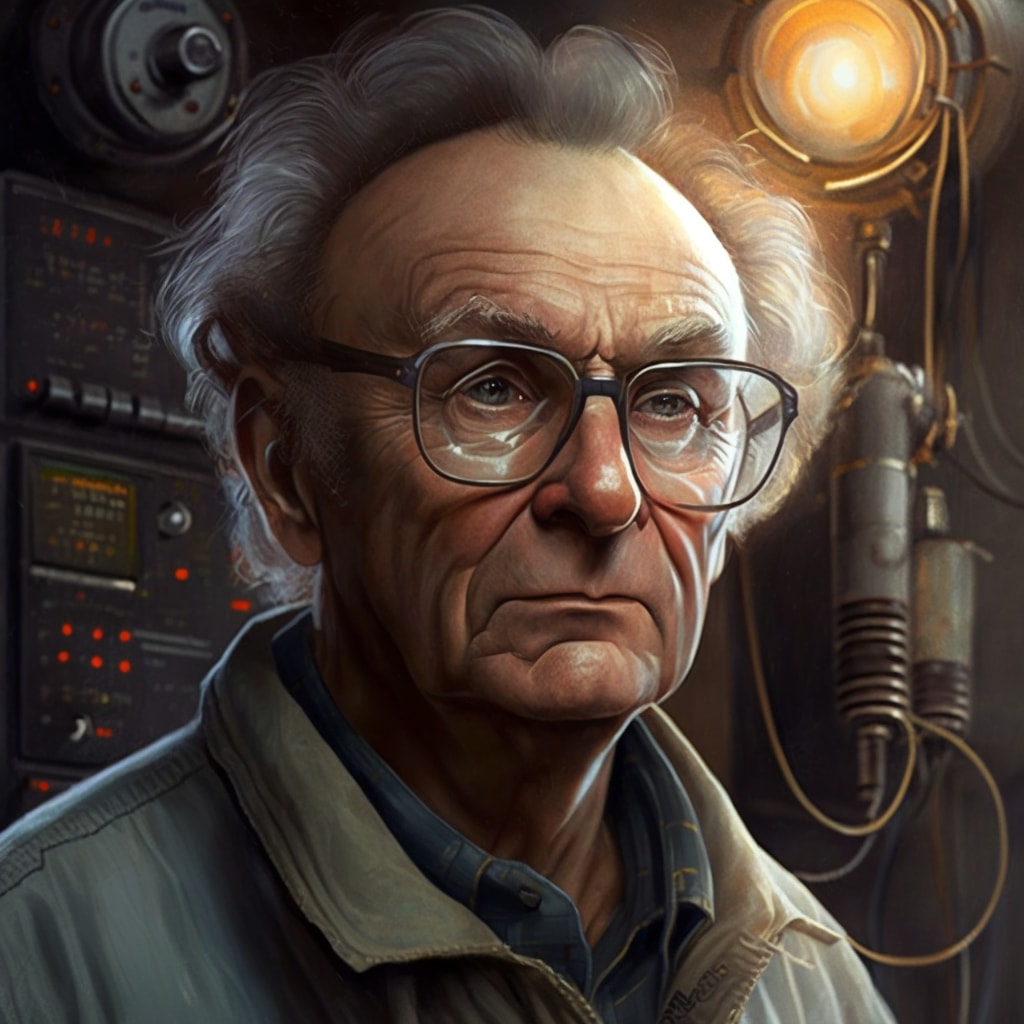Anatoly Dneprov was a Russian-born physicist and author whose short science fiction stories The Game (1961) and Crabs on the Island (1968) present haunting visions of the AI Tsunami that we face today, 60 years later. [from WikiPedia:] In The Game, Dneprov presents a scenario, the Portuguese stadium, anticipating the later China brain and Chinese room thought experiments. The plot concerns a stadium of people who act as switches and memory cells implementing a program to translate a sentence of Portuguese, a language that none of them knows.
Dneprov’s “Game”
The plot of the story goes as follows: All 1,400 delegates of the Soviet Congress of Young Mathematicians willingly agree to take part in a “purely mathematical game” proposed by Professor Zarubin. The game requires the execution of a certain set of rules given to the participants, who communicate with each other using sentences composed only of the words “zero” and “one”. After several hours of playing the game, the participants have no idea of what is going on as they get progressively tired. One girl becomes too dizzy and leaves the game just before it ends.
On the next day, Professor Zarubin reveals to everyone’s excitement that the participants were simulating an existing 1961 Soviet computing machine named “Ural” that translated a sentence written in Portuguese:
“Os maiores resultados são produzidos por —
pequenos mas contínuos esforços.”
it is important to note that in the story, not a single one of the participants speaks Portuguese, therefor noone understands the meaning of the words, or the sentence. However, eventually, the crowdsourced “human computer” translates the sentence into Russian as:
“The greatest goals are achieved
through minor but continuous ekkedt.”
…a phrase, in a language that everyone in the crowd naturally understood. It becomes clear that the last word, which should have been “efforts”, is mistranslated due to the dizzy girl having left the simulation just prior to its completion.
The philosophical argument developed by Dneprov is presented in the form of Socratic dialogue. Consequently, the main conclusion from the Portuguese stadium is contained in the final words of the main character Professor Zarubin:
“I think our game gave us the right answer to the question `Can machines think?’
We have proven that even the most perfect simulation of machine thinking is not the thinking process itself.”
The general structure of the proof constructed by Dneprov is the same as the one employed in the Chinese room argument:
- People are used to simulate the working of a computer machine, which translates a sentence from some unknown language A to their own language B.
- The people do not understand language A, neither before, nor after they perform the translation algorithm.
- Therefore, the mere execution of the translation algorithm does not provide understanding.
Stanislaw Lem’s take on Dneprov
Polish science fiction writer Stanisław Lem summarizes Dneprov’s argument in his book Summa Technologiae (1964) as follows:[14]: 324
“Physicist and science fiction writer Anatoly Dneprov has described an experiment in his novella, whose aim was to debunk a thesis about “infusing with spirituality” a language-to-language translation machine by replacing the machine’s elements such as transistors and other switches with people who have been spatially distributed in a particular way. (GR: this is, essentially, the definition of a neural net, the core component of modern Deep Learning systems)
Performing the simple functions of signal transfer, this “machine” made of people translated a sentence from Portuguese into Russian, while its designer asked all the people who constituted the “elements” of that machine what this sentence meant. No one knew it, of course, because the language-to-language translation was carried out by the system as a dynamic whole.
The designer (in the novella) concluded that “the machine was not intelligent.”
BONUS:
read the full text of Crabs on the Island, plus
an excellent animated short based on same.

